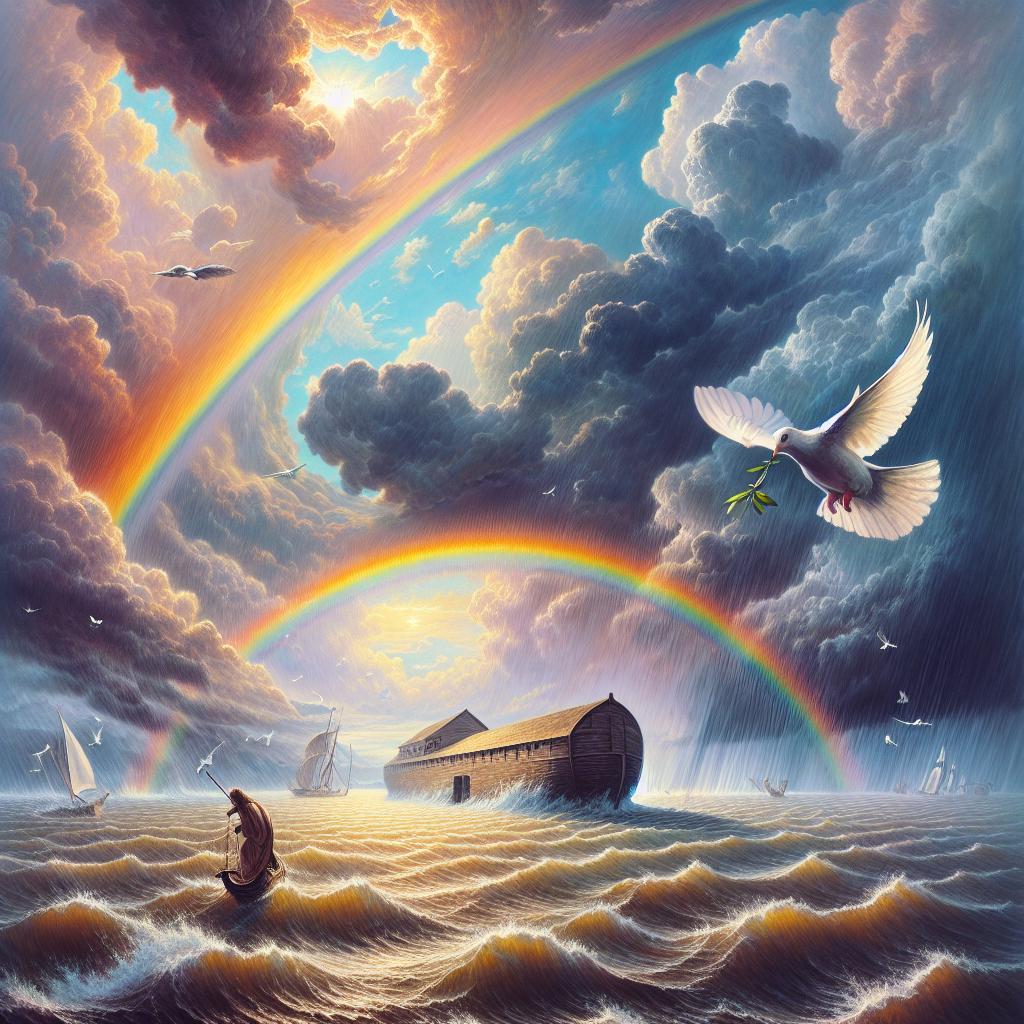
Unveiling the Biblical Connection: Noah's Flood and the Gilgamesh Epic Revealed
Published: 21 September 2024
Noah's Flood and the Gilgamesh Epic
The story of Noah's Flood from the book of Genesis has faced significant criticism throughout history. One popular theory suggests that the biblical account was borrowed from flood legends in Mesopotamia, particularly the Gilgamesh Epic. However, it is important to examine the evidence and consider the differences between these two accounts.
The Gilgamesh Epic
The Gilgamesh Epic is an ancient poem discovered in Nineveh in 1853. The tablets containing the epic date back to about 650 BC, but the story itself is much older. The hero of the epic, Gilgamesh, is described as two-thirds divine and one-third mortal. The story follows his adventures and his search for immortality after the death of his friend Enkidu.
In the 11th tablet of the epic, Utnapishtim, a survivor of a global flood, recounts his experience. The gods decided to flood the entire earth to destroy mankind due to their wickedness. However, Utnapishtim was warned by the god Ea to build a massive boat to save himself, his family, and various animals.
The flood lasted for six days and seven nights before subsiding. Utnapishtim's boat eventually landed on Mt Nisir, and he released birds to find land. After the flood, Utnapishtim and his wife were granted immortality by the gods.
Comparison of Genesis and Gilgamesh
While there are similarities between the flood accounts in Genesis and the Gilgamesh Epic, there are also significant differences. In Genesis, the flood was a global event caused by mankind's wickedness. God chose Noah to build an ark to save his family and representatives of every kind of land animal.
In contrast, the flood in the Gilgamesh Epic was also global but was caused by man's sins. The gods decided to destroy mankind and only warned Utnapishtim, who then built a boat to save himself, his family, and some animals. The gods in the epic are depicted as capricious and dependent on human sacrifices.
Genesis is Older
It is more likely that the Genesis account is the original, and the flood legends in other cultures are distortions of that original account. While Moses, who compiled Genesis, lived long after the flood, he likely acted as an editor of older sources. Genesis includes specific details regarding cities that were destroyed by God for their wickedness, which were well-known landmarks at the time of writing.
Furthermore, many flood legends exist in various cultures around the world, not just in Mesopotamia. This suggests that these legends have a common root in a real global flood event. All people groups seem to have retained memories of this cataclysm.
Ark Shape
The dimensions of Noah's Ark described in Genesis were designed to optimize stability and minimize rolling. The ark was built to be longer than it was tall or wide, making it resistant to tipping over. Even under extreme conditions like a three-times hurricane force wind, the ark's stability would not have been compromised.
In contrast, Utnapishtim's ark in the Gilgamesh Epic is described as a huge cube. This design would have made it highly unstable and prone to tipping over in any direction. This difference can be explained by the distortion of the original account by pagan authors who created their gods in their own image.
Genesis is the Original
The similarities between the flood accounts in Genesis and the Gilgamesh Epic can be attributed to their proximity to the real event. However, the differences between them indicate that Genesis is the original account while the Gilgamesh Epic is a distortion.
The theory that the biblical account borrowed from the Gilgamesh epic is based on discredited assumptions about the compilation of the Pentateuch. The internal evidence of Genesis suggests that it was written for people who had just come out of Egypt, not during the Babylonian Exile. The biblical account also depicts a just and patient God, while the gods in the Gilgamesh Epic are portrayed as capricious and dependent on human sacrifices.
Why This Matters
The debate between the biblical account of Noah's Flood and the flood legends in other cultures has implications for the reliability and historicity of the Bible. Understanding the differences and similarities can help us discern the truth behind these accounts and reinforce our confidence in the biblical narrative.
Think About It
- How do the differences between the Genesis account and the Gilgamesh Epic affect our understanding of the flood?
- What does the preservation of flood legends in various cultures around the world suggest about a real global flood event?
- How does the stability of Noah's Ark challenge the notion that it was an unrealistic or implausible vessel?
- Why is it important to consider the originality of the Genesis account when evaluating theories about its borrowing from other sources?
